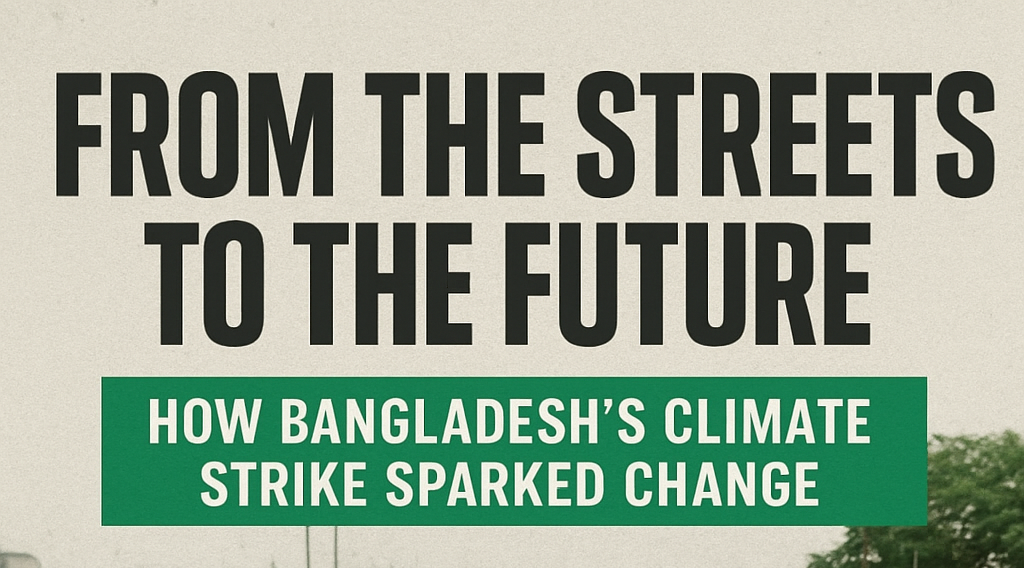Community
From the Streets to the Future: How Bangladesh’s Climate Strike Sparked Change
On April 11, 2025, Bangladesh witnessed one of its largest coordinated climate actions in recent years
Arthur Rahman
EcoBangla Correspondent
August 12, 2025
14
0

From Dhaka’s National Parliament area to the coastal towns of Satkhira, Barguna, and Barishal, thousands of young people, environmental advocates, and local community leaders took to the streets with a unified message: Climate justice now! This was part of the Global Climate Strike, organised by a coalition of groups including Activista Bangladesh (ActionAid), Fridays for Future, YOUCAN, Waterkeepers Bangladesh, DHORA, and 350.org. Demonstrations were held in over 50 districts, making it not just a protest but a nationwide environmental awakening. Voices from the Frontlines In Dhaka, more than 1,000 protesters gathered on Manik Mia Avenue, demanding an end to fossil fuel financing, rapid expansion of renewable energy, and increased climate finance for vulnerable communities. > “We cannot talk about development while destroying our planet,” said one student leader. “Every decision must put people and the planet first.” In Satkhira, students held banners calling for compensation for families displaced by rising seas and cyclones. In Chattogram, activists highlighted the government’s failure to provide alternatives to polythene, urging immediate action to cut plastic pollution. In Barguna, 22 youth groups ended their march with a symbolic road blockade, demanding accountability from high-emitting nations for the losses faced by Bangladesh’s coastal communities. What the Strike Achieved While the strike was just one day, its ripple effects are already visible: 1. Raised National Awareness – The protests dominated national media coverage for several days, sparking public debate about climate policy and pollution control. 2. Government Engagement – Ministry officials met with strike representatives, agreeing to review renewable energy targets and plastic reduction policies. 3. Youth Empowerment – The mobilisation gave young people a platform to influence national discourse, proving that grassroots voices matter in policymaking. 4. Global Solidarity – By joining the Global Climate Strike, Bangladesh’s activists connected with movements in 60+ countries, strengthening calls for international climate finance. 5. Policy Momentum – In the weeks following, local municipalities in Satkhira and Barguna announced pilot projects for mangrove restoration and improved cyclone shelter facilities. Why It Matters Bangladesh is among the countries most at risk from climate change. Rising seas, extreme weather, and river erosion are already displacing millions. This strike was not just about slogans — it was about survival, dignity, and the right to a livable future. > “When coastal youth march alongside urban students, it shows climate change is everyone’s issue,” said a Waterkeepers Bangladesh organiser. “This unity is our strength.” The Road Ahead Activists plan to continue building pressure through local campaigns, school awareness programs, and policy advocacy. The April strike proved that when communities come together, they can make climate justice not just a demand — but a national priority. Bangladesh’s fight against climate change is far from over. But one thing is clear: the voices of its youth will not be silenced.
Comments (0)
Please sign in to leave a comment
No comments yet. Be the first to share your thoughts!
Related Articles
No related articles found.